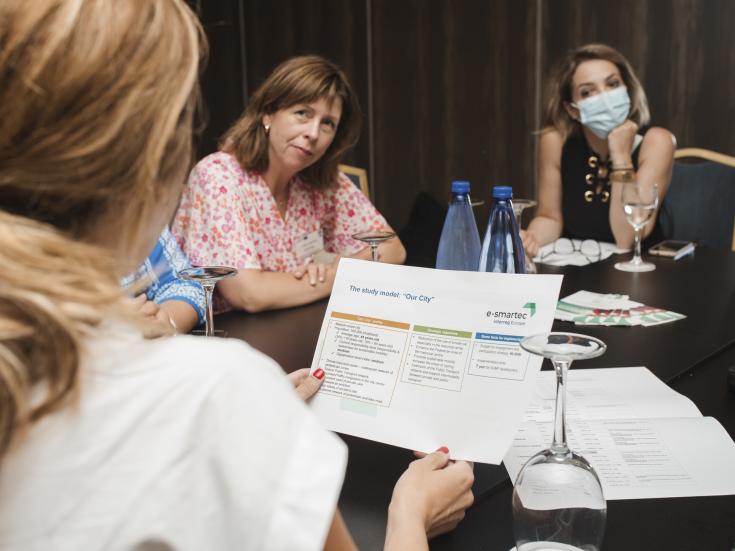Co-creation of mobility plans (MaaS bundles)

On 29 June, the Policy Learning Platform organised a matchmaking session for the University of Aveiro, Portugal.
In particular, the host required advice on financing and compensation mechanisms, regional policy frameworks, monitoring and encouraging behaviour change, how to adapt Sustainable Urban Mobility Plans (SUMPs) for MaaS, and how to ensure MaaS is truly sustainable.
The matchmaking was held in Thessaloniki, following the workshop on ‘Behaviour change and participatory processes for sustainable mobility'.
Peers
Alongside our experts, Katharina Krell and Simon Hunkin, peers from across Europe were invited to share with the host their good practice and recommendations.
- Georgios Georgiadis, Aristotle University of Thessaloniki, Greece (PE4Trans)
- Vasilis Mizaras, CERTH / HIT, Greece (REFORM, e-Smartec)
- Stefanie Schwerdtfeger, Hessen Trade & Invest GmbH, Germany (e-smartec)
- Marlene Mösle – Hessen Trade & Invest GmbH, Germany
- José Augusto Baptista Vieira, Municipality of Funchal - Mobility and Traffic Division, Portugal
- Maria Morfoulaki – CERTH/HIT (e-smartec)
- Eleni Katsigianni – Managing Authority of European Territorial Cooperation Programmes
- Symela Pasalidou – Managing Authority of European Territorial Cooperation Programmes
- Foteini Mikiki – Municipality of Serres
- Beatriz Fernandes – University of Aveiro (PriMaaS)
- Anthis Tsakiropoulou – Major Development Agency Thessaloniki (DESTI-SMART)
- Lazaros Panagiotidis – Major Development Agency Thessaloniki (DESTI-SMART)
- Rosanna Semerdijan - Managing Authority of European Territorial Cooperation Programmes
Access the full follow-up report to explore all key takeaways and follow-up actions.
Some key takeaways
Challenges remain in how to please different target groups, ensure that MaaS is truly sustainable, define the role of public authorities, and consider the role of public subsidies.
Participants noted a major challenge in engaging private mobility providers and getting them to work with public transport providers, where there is often competition and a reluctance to share data. Similarly, private companies are interested in innovative products and services driven by profit, but may not consider inclusivity and social cohesion, unlike public transport.
It may only have one type of public transport available, usually bus lines. MaaS also often does not cover the urban periphery and smaller edge settlements.
Where users can make use of different mobility solutions with only one payment system.
For more takeaways, explore the follow-up report!
Co-creation of mobility plans matchmaking | Key learnings
Co-creation of mobility plans matchmaking | Key learnings
